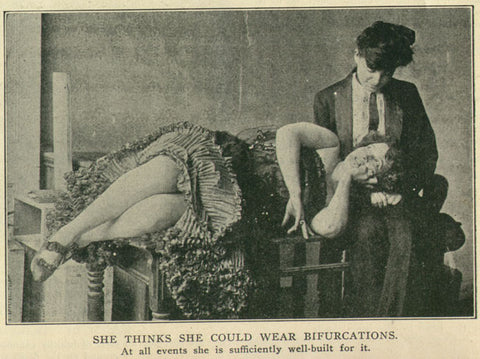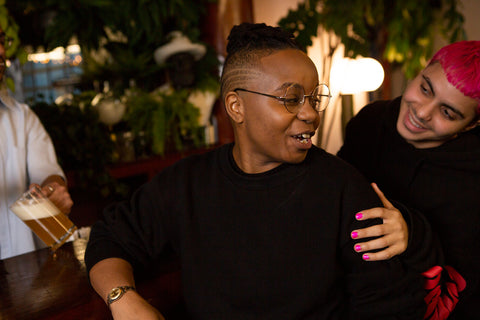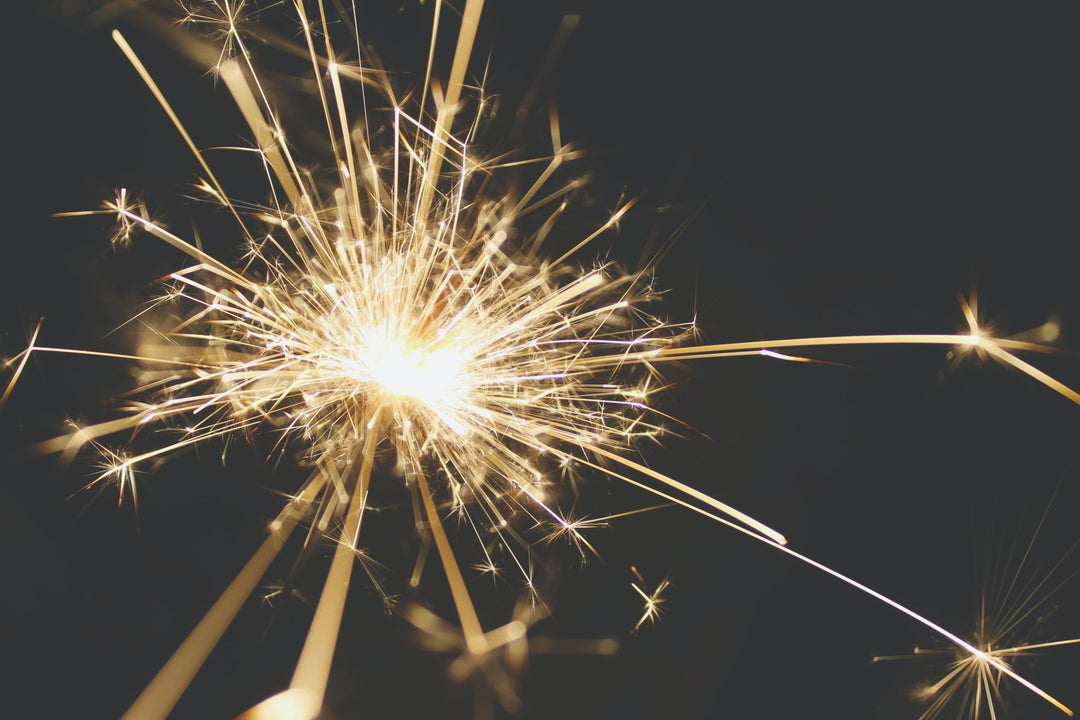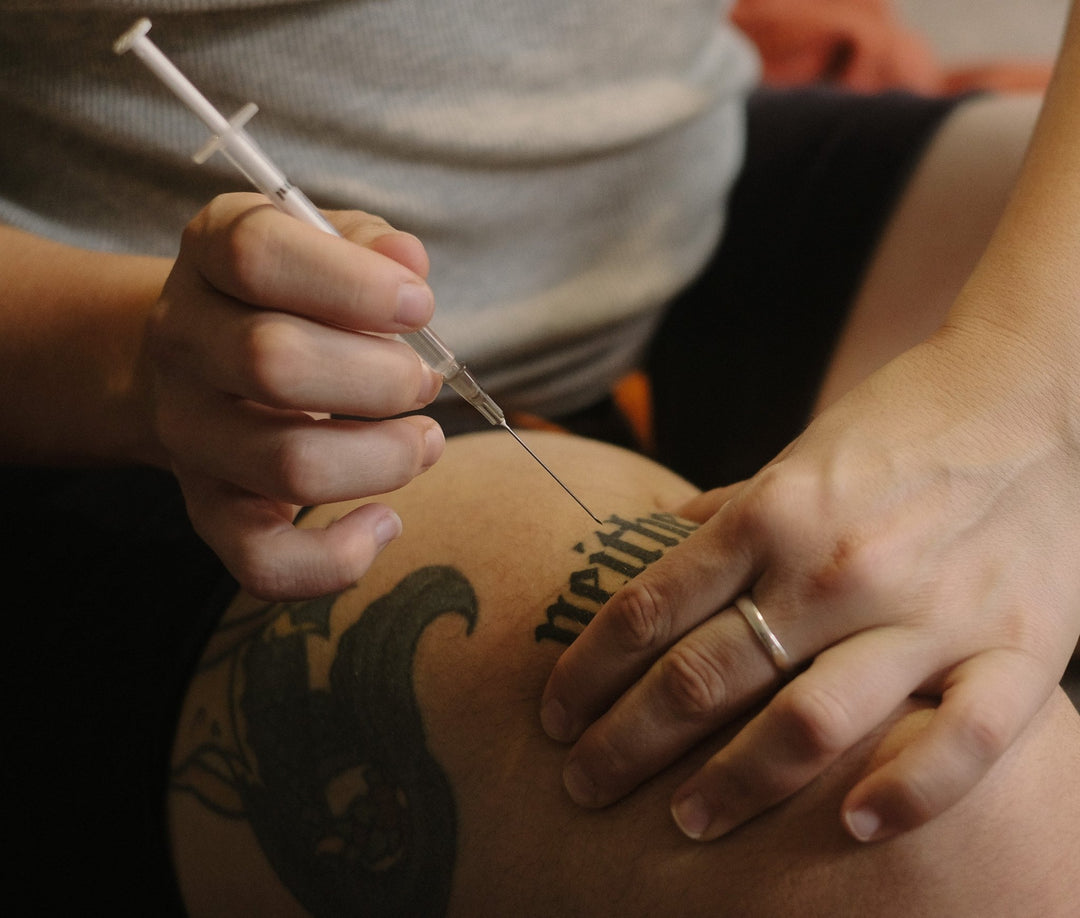"What's A He/Him Lesbian?" | 6 Questions About Butches Answered
Content warning: This post includes some mention of historical slurs and discrimination.
Butch as an identity has been around for almost a century, but it's still often poorly understood even within the queer community. The breadth of the term and the many, many things it can mean makes it difficult to define or pin down, and like all identities it's evolving all the time. In this post, we'll give a rundown on some common questions about butches, and offer some tips for figuring out if you're butch too.
A Background on Butch-Femme Culture
‘Femme,’ which comes from the French word for woman, can be either a noun or an adjective. Definitions vary but the general idea is someone who is feminine and might not be ‘read’ as sapphic unless they are with a butch or femme partner.
The origin of ‘butch’ as a word is unclear, and similarly to femme it can be a noun or adjective. It describes someone who presents masculine in a subversive way. Butch can also be considered a gender, or a relationship role.
Other terms similar to butch include tomboy, boi, AG (aggressive), masculine of centre, and stud (a term used by the African-American lesbian community.) These do have their own meanings though, so aren’t exact synonyms.
As lesbian culture had to be underground for much of the 20th Century, it is difficult to tell exactly when and where these terms originated. In the US, butch-femme culture rose in popularity in the 1940s and 1950s, when women were allowed to visit bars without a man and lesbian culture could grow.
Butch-femme couples were considered the norm in early lesbian culture, and relationships deviating from that could be taboo.

1. Aren’t butch-femme couples just re-enforcing heteronormativity?
Not really. Butch-femme couples challenge heteronormativity, as butches subvert heterosexuality by being masculine women or masculine partners to women, and femmes subvert heterosexuality by presenting femininely for themselves or for butch partners rather than for men.
The strict enforcement of butch-femme roles regardless of the individuals’ preferences however can mimic the oppressive aspects of heteronormativity. Choice is an important aspect of all queer relationships.
2. What is B4B?
B4B is short for ‘butch for butch,’ and is often used by butches to indicate they’re interested in relationships with other butches. Some butches exclusively date femmes, some exclusively other butches, and some don’t have a preference or date people who don’t use those labels.
Butch-butch relationships were often considered taboo in the past, and may be in some groups still today. Slurs such as ‘faggy butch’ were used against butches who dated other butches.
3. Can only lesbians be butch?
It’s complicated, but basically, no, it's not just lesbians. There’s no one single definition of butch. It’s often used as an adjective by gay men. Butch as a gender isn’t constrained by sexual orientation. Butch as a relationship role might be considered impossible in a heterosexual relationship. When butch was first used as a term, there wasn’t a concept of lesbianism and bisexuality as separate orientations.
4. Are butches cis or trans?
Again, a complicated question! There’s no one hard and fast rule, it just comes down to how the individuals identify. They may identify as cis women, trans women, nonbinary, transmasculine, genderqueer, or many other things.
It’s not unusual for butches to go on testosterone, or undergo procedures like top surgery usually associated with trans men, but still identify as a butch. Similarly, a trans woman may medically transition and choose to present as a masculine woman. These identities can all overlap and intersect.

5. What is a he/him lesbian?
A he/him lesbian is a lesbian who uses he/him pronouns, either exclusively or in addition to other pronouns. He may be butch, but not always.
The concept of a lesbian using he/him can be difficult to understand at first. The important thing to remember is that pronouns can indicate, but do not determine gender. You can even think about it like clothes – wearing a dress doesn’t make you a girl, but does usually indicate that you are presenting femininely. Similarly, using he/him can indicate a masculine presentation, but does not make someone a man.
He/him lesbians may use he/him in all situations, or only in public, or only with a partner, or only online, or in any other combination of situations.
Even if you can’t understand why a lesbian is using he/him pronouns, the most important thing is to respect his pronouns as you would with anyone else.
6. Am I a butch, nonbinary, or a trans man?
That’s a question only you can answer! But these terms aren’t mutually exclusive. Many butches are nonbinary, and a trans man may describe himself as butch. Wanting to medically transition also doesn’t rule out being a butch woman, but not all butches experience dysphoria so that’s not a ‘clue’ either.
If you’re struggling with deciding if you want to use butch as a label or not, here’s a few things to ask yourself that might help:
- Do you want to call yourself butch? Does that feel good to you?
- Do you feel kinship with butches you know, or see online?
- How would you feel if a stranger assumed you were butch?
- If you’re not already in a relationship but you hope to be in the future, try and imagine the role you would want to take in that. Do you feel good about the idea of being a butch in that relationship?
- Imagine yourself when you’re older. Does the idea of being an older butch appeal to you?
This was just a small taster on the complexities of butchness, but hopefully gave you a bit of insight into a longstanding and historic identity. If you’re interested in reading more about butchness, ‘Stone Butch Blues,’ by Leslie Feinberg, and ‘Female Masculinity,’ by Jack Halberstam, are both considered classic texts on the subject (though please be aware of the relevant trigger warnings for both.)
Don’t forget to sign up to our newsletter to read all our new blog posts and get a 10% off coupon for all items!
Also, check out our new podcast Never Would’ve Guest, now available wherever you get your podcasts! In episode one, we discuss what happens when butchness and disability intersect. You can listen to Episode 1 and read the transcript here.








